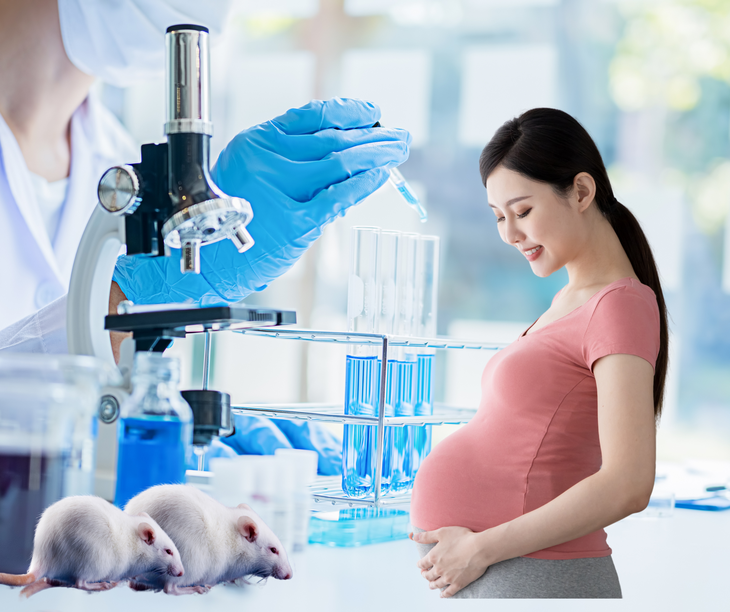
Researchers are increasingly interested in the possibility that maternal nutrition, as well as the impact of toxic environmental factors, can affect gene activity during the early stages of fetal gonadal development - Photo: AI
In mammals, biological sex is determined primarily by chromosomes: XY makes a male, XX makes a female. A key gene, SRY, initiates testicular formation if activated in an XY embryo. Conversely, if SRY is not activated, ovaries are formed.
In a new study, Japanese scientists discovered that SRY can only function thanks to an enzyme called histone demethylase, and this enzyme requires iron to perform its function.
Iron deficiency can impair enzyme activity, causing SRY to be "turned off" even though the chromosomes are XY, leading to the development of ovaries instead of testes.
To test the hypothesis, the team fed mother mice an iron-deficient diet one month before pregnancy and continued it through the first two weeks of pregnancy.
The results showed that the mother mice were anemic, and the embryos also showed signs of anemia. Most of the fetuses still developed genitalia appropriate to their chromosomes.
However, when the team tested the mice again on a group of mice with a mutation that weakened the activity of the enzyme histone demethylase, two of the 43 XY mice developed female sex organs (two ovaries). In contrast, all of the control mice developed sex organs that matched their genetic sex.
The team continued to administer chelating iron between days 6 and 10 of gestation, when sex determination occurs. Of the 72 XY embryos born, four had two ovaries, and one had both ovaries and testes.
Remarkably, when the team directly targeted a gene responsible for transporting iron into gonadal cells, they saw the expression of the SRY gene drop by half. At birth, six of the 39 XY offspring had two ovaries, and another had one ovary and one testicle.
Although most embryos developed normally, the study opens up new avenues for understanding how trace elements such as iron can interfere with the process of sex determination, which has long been considered to be "hardwired" and genetically determined.
There is currently no scientific evidence to confirm that a similar phenomenon occurs in humans. However, researchers are increasingly interested in the possibility that maternal nutrition, as well as the effects of environmental toxins, can influence gene activity during the early stages of fetal gonad development, a process that is inherently extremely sensitive and vulnerable.
This new finding also raises broader questions: Does iron play an important role in regulating genes other than SRY? Does it influence the development of the nervous system and other biological systems in the fetus? These questions are opening up a promising research direction in the fields of developmental biology and modern fetal medicine.
Source: https://tuoitre.vn/me-thieu-sat-khi-mang-thai-co-the-khien-gioi-tinh-con-bi-thay-doi-20250609121705382.htm





































































































Comment (0)